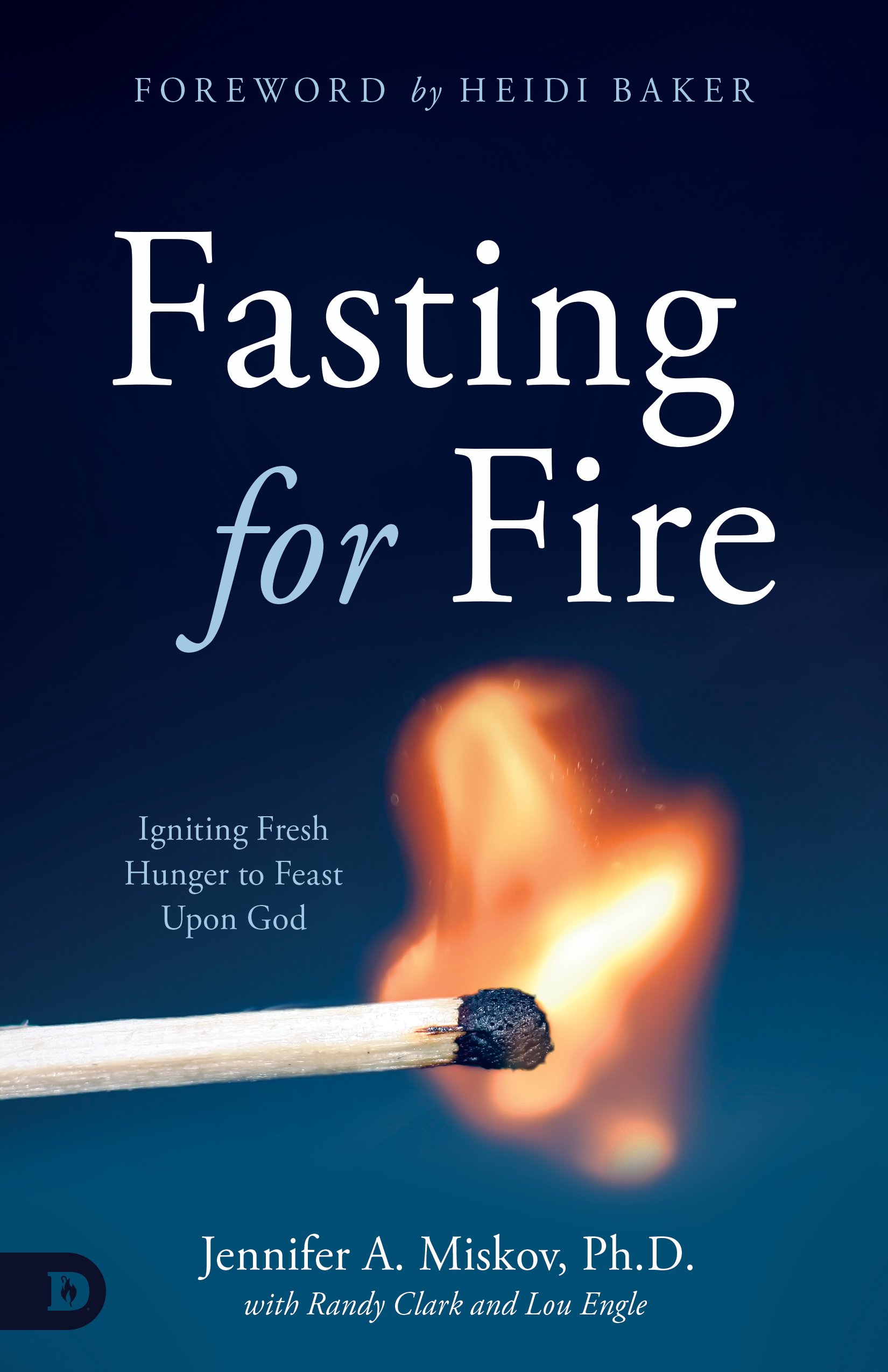Revival series part 4
by Jennifer A. Miskov, Ph.D., Revival Historian
Keys for Stewarding Personal Revival, Encounter, Awakening (taken from Jen’s book SustaiN the Flame)
When the fires of revival get ignited, then what? The Moravians knew that it was important to then steward the flames of revival to keep the oil burning and thus they cultivated the new wine skin of 24-7 prayer. Though the wineskins for how to steward the fires of revival may look different, we can learn from the Moravian’s example that unity in prayer is a key for stewarding corporate revival.
And when revival comes to us personally or God meets us in a profound way, it is also important to steward those encounters to keep the oil burning. Cultivating family around the fireplace of revival, stewarding a heart of worship in all circumstances, and praying in tongues regularly are keys that can profoundly shape our spirituality and keep us focused on the face of Jesus. In addition to these, the following are some rhythms and pathways to greater intimacy with Jesus and stewarding the fire that I have found helpful in my life.
1. Stay Full of the Oil of Intimacy
In Matthew 25:1-12, we see the story of the wise and foolish virgins. This parable is symbolic of making sure we steward the oil of intimacy in our lives to keep the fire burning. If we try to rely upon other’s secret place encounters and stewardship of their relationship with Christ, it won’t get us to where we need to go. We must personally make sure to invest time in the secret place with Jesus, getting filled up by Him with the Holy Spirit and fire. There is no shortcut to building intimacy with Jesus, it requires time and an open and vulnerable heart. In John 15:1-8, we see that all fruitfulness flows from intimacy with Christ. We must stay connected to our Source. Read Walking on Water: Experiencing a Life of Miracles, Courageous Faith, and Union with God to go deeper in this area.
2. Consume the Word of God
We must be a people who know the truth deeply, especially in the midst of the increasing delusions, lies, and deceptions of the enemy. People who work at banks know when there is a counterfeit bill because they handle so much real money. When we are saturated in the truth, we will know when something is off. The shaking in our world will only increase. We must stand strong on the Word of God which is a solid rock. We must read it, eat it, breathe it, meditate on it, memorize it, and make declarations with it. Audio versions of the Bible are also a good way to get the Word hidden in our hearts.
3. Steward Encounters and God’s voice
We must learn to discern and steward the voice of God through His Word, encounters, as well trusted prophetic voices in speaking into our lives. If God marks you, linger in that space. Don’t shift or transition too quickly out of an encounter with God. Don’t jump right into a conversation with someone or look on social media or get distracted another way. Allow what He has just blessed you with to permeate to the deepest levels. Meditate on what it good and it will have a greater effect on you. Journal what He has shown you. When God speaks to you, obey Him immediately and keep your heart tender toward Him. Steward prophetic words over your life. Make sure to audio record them, and then listen to them, write them out, and pray over them until they become a reality.
4. Fast
Develop a rhythm of weekly or regularly fasting to keep the fire burning. You would be surprised at the radical shift that regular fasting can have in your life. Jesus regularly fasted and we must learn how to walk in His footsteps. Many revivals, encounters, or defining moments in revivalists’ lives were birthed while on a fast. See my book Fasting for Fire: Igniting Fresh Hunger to Feast Upon God for more on this with practical tools to help get you started or a reframing of what it really is to re-ignite you.
5. Learn to Wait on the Holy Spirit
Psalm 46:10 says “Be still, and know that I am God.” How many times do we stop talking, moving, planning, to simply just be with God and sit in His presence?[ii] Too many of us think we have to strive, contend, push to see God move. But what if rather than trying to make things happen on our own, we instead spent time with the Holy Spirit, listened to what is on God’s heart, were fully yielded, and simply responded to where He was leading? What if like Moses, we weren’t going to go anywhere, even into revival or into our destinies, if He didn’t go with us? What if we became a people that was led by fire in the night and cloud in the day? Or a people who wouldn’t move anywhere without His presence (Exodus 33)?
6. Embrace Rhythms of Run, Rest, Release
It is important to discern what season you are in so you can steward it well in preparation for the upcoming season. Many times in life, there are seasons where you run hard, rest, then release or birth new things. This is cyclical in nature. During times of revival, things accelerate, people are running fast, it’s time to push. But it is also important to embrace the Sabbath. Recognize what season you are in and adjust to make sure you get what is needed in that time. The sabbath is not only Biblical, it is also a key for unlocking greater creativity in our lives. Embracing the sabbath, having fun, eat healthy, exercising regularly, and stewarding our bodies which are temple of the Holy Ghost are essential to run hard and finishing well. We don’t want to be a people who burn and then burn out. We need the sustaining burn.
7. Surround yourself with other Burning Ones
A single flame alone might burn for a little while, but for that flame to increase and not die out, it is important to unite with other flames. The more flames come together, the greater the fire and likelihood that your flame will not whither. I’ve seen too many people be a part of a great culture, environment, or ministry school for a season, get radically impacted, and then back to their homelands without being intentional to find and run with other sold-out burning ones. Soon, their fire wanes or even worse, they go back to a lifestyle they had before God encountered them powerfully. We must find other passionate Jesus lovers wherever God places us. The great thing now is that even if you can’t find any in your hometown, you can run with other burning ones in online communities for support to keep the fire burning. Ask God to surround you with spiritual mothers and fathers, kindred-spirited burning friends, and others you can encourage.
8. Steward the Power of the Testimony
Another way to build up your faith and keep the fire burning is to recount and thank God for the testimonies of His faithfulness in your life and how He’s come through in the past. Whether it is by framing a picture on a wall that reminds you of a breakthrough or of His radical provision, writing down testimonies on a 3x5 card to go over to encourage yourself in, or some other creative way, do it! Steward these stones of remembrances (Joshua 4). By stewarding testimonies of God’s faithfulness in the Bible, in revival history, in the lives of others, and in your own personal history with God, you are prophesying into future breakthroughs and radical acts of faith.
9. Learn how to Deal with Disappointment
One of the greatest things that I’ve noticed takes Christians out or sidelines them is when they fail to deal with disappointment well. Some might suffer loss, have something happen to them they don’t understand, step out in faith for something that doesn’t happen. Rather than learn from it and trust God will turn it around for their good, many get discouraged, disillusioned, build up distrust against God, or condemn themselves as failures. If we really believe all the promises found in Romans 8 and have a healthy perspective on God the Father, we won’t turn to bitterness or embrace disappointment. Instead, we will deepen our connection with the Father and learn to trust Him even more. Memorize and believe Romans 8 and you will not be shaken.
10. Choose Unity and Love
This is both important on a personal and corporate level. Strive to be at peace with all people and take the road of humility again and again (Romans 12:18, Philippians 2). Trust God to vindicate you where you’ve been wronged. And just as Christ forgave you, so you must also do.
11. Don’t be Afraid to Shine
And finally, don’t be afraid to shine (Isaiah 60). God has appointed some to be leaders in our generation. Not everyone has been given the same amount of influence, favor, resources, anointing for leadership upon your life. Be the gift God has called you to be, however that might look. Not everyone was called to lead the Israelites out of Egypt, but Moses was. Then it was Joshua who God appointed to lead them even further into their promised land. Humbly do the assignments God has entrusted to you without making excuses, making yourself look smaller, or sabotaging the call of God on your life (Ephesians 2:10). Give all the glory to God but when the invitation is there, step in while clinging to Him.
REFLECTION QUESTIONS
Hopefully some of the rhythms I have learned in my own life for stewarding the fire will encourage you. There are many more ways to steward the fire that may be unique for you.
Which of these keys are you already doing well in?
Which of these keys are highlighted for you to develop further?
What other keys have you noticed that can help you steward the fire in your heart that may be unique for you in this season?












































